Saturday, 31 May 2003
Distance 37 km
Duration 8 hours 15 minutes
Ascent 749 m, descent 758 m
Map 57 of the TOP100 blue series (now superseded)
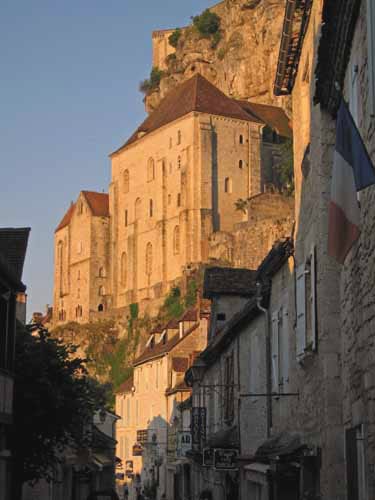
Before leaving l’Hospitalet, we again admired the view of Rocamadour, this time in pearly dawn light, then marched down and through the sleeping village.
We had neither map nor guide for the day’s walk to Gourdon, although we knew the GR652 would get us there. There are two GRs leaving Rocamadour to the west – the GR46, which soon crosses the river and climbs onto the causse in the direction of Labastide-Murat, and the GR652, which follows the river downstream before turning towards Gourdon. (The other complication is that the GR652 goes by the name of GR6 for the first part of the day, then changes to the GR64.)
We were blithely ignorant of all this at the time. We just followed the red-and-white markers, first down the river gorge with its gravelly cliffs, then over a rise, across the autoroute and through forest, sometimes on small roads, sometimes on wheeltracks or woodland paths. A plantation of tall, smooth trees in rows cast slanting shadow patterns.
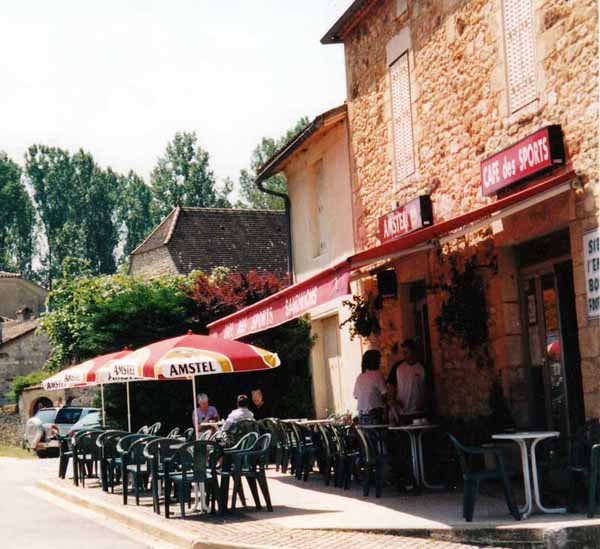
After a long time we were to surprised to find that we were entering a town. This was le Vigan, a place whose very existence was unknown to us, but that made it all the more welcome.
We swiftly settled ourselves outside the Bar des Sports for coffee and croissants, with our bare feet in the sun, while the waitress refilled our bottles with icy water.
Not much further on we had lunch on a stone bridge over a rivulet. Then the track joined a road and we saw the sign announcing the entry to Gourdon, followed a few hundred metres later by the crossed-out sign indicating we were leaving it.
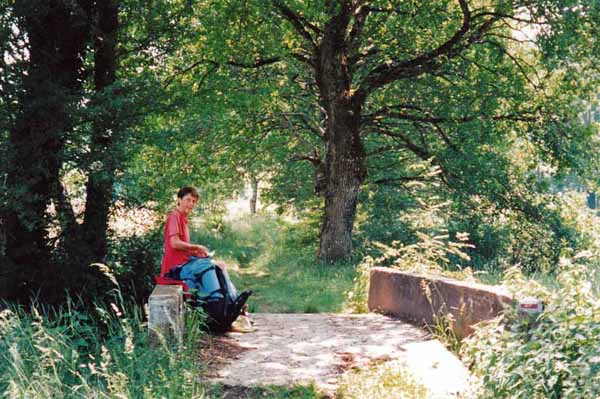
We were actually on a sort of ring road, from which we soon diverged to visit the isolated chapel of Notre Dame des Neiges, with its ancient water mill.
The designers of GRs can never resist a site with pilgrim connotations.
Eventually we made our way back into Gourdon, climbing towards the church, which is on a distinct knoll encircled by the main street. Impressive stone buildings from a former age of prosperity lined the way.
Before indulging in another coffee, we decided to go to the camping ground, as there were signs to it on the road.
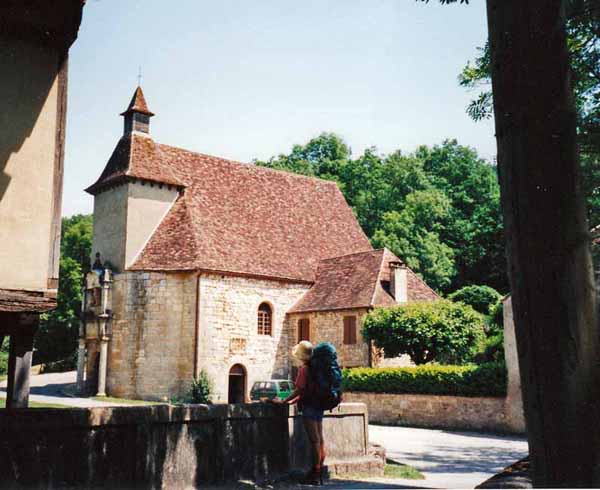
The Office of Tourism was visible up a side street, but we did not bother to go there. This was how we learned one of our strictest rules – never assume that you know what the Office of Tourism will tell you.
Two or three unpleasant, thirsty kilometres on a molten bitumen road got us to the depressing remains of a camping ground, half bulldozed and lacking even a tap. Making our chastened way back, we hurried to the Office of Tourism, to be told that there was a functioning camping ground not far out on a different road.
It was time for the consolation of a coffee break, which we took in the shade in the main street. The coffee came with a little square of chocolate, on the wrapper of which was a portrait of an old man with a waxed moustache – the very waiter who served us.
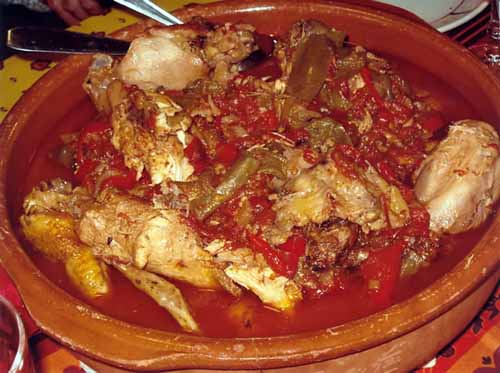
There was a woman at a nearby table, arrestingly beautiful in a dark-haired way, sitting with a fine young fellow and a blotchy, thick-set, ungainly one. We felt sorry for this ill-favoured specimen until they all got up to leave and the woman clung to his arm, waving dismissively at the handsome one. It was a victory for us ugly people.
The camping ground was Paradis by name and Paradis by nature, with strong, hot showers and thick grass. Later we went back to the main street for dinner. The only place seemed to be the old Hotel de la Promenade, which was doing a brisk trade.
As we often do, we ordered a three-course menu plus a single main dish, so that we shared the entree and dessert. The entree was a quiche made with tomatoes and the local goat’s cheese called cabecou.
The main course was Poulet Basquaise, rich with capsicums and chilis, a dish we were to have many times again in the Pyrénées, but never more enjoyably than here. A vegetable gratin and a salad accompanied this, and we finished with black-currant ice-cream.
Previous section: Martel to Rocamadour